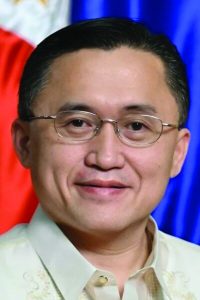ORMOC CITY-Senator Christopher “Bong” Go has championed a series of important health bills with the aim of improving the accessibility of government services for the Filipino people, particularly the poor and indigents.

These proposed measures seek to bridge the gap between citizens and essential healthcare, as well as enhance mental health support across communities.
The first bill, the Regional Specialty Centers Act, which recently passed the Senate’s third and final reading, is currently awaiting the signature of President Ferdinand Marcos Jr.
Go, an author and the principal sponsor of the bill, underscored the significance of establishing specialty centers in various regions.
During his visit to this city on Friday(June 16), Go informed that if enacted, these centers would provide specialized medical services to individuals who cannot afford or travel to Metro Manila for treatment at National Specialty Centers like the Philippine Heart Center, Lung Center, or National Kidney and Transplant Institute.
“With this, we can bring medical services closer to our fellow citizens who have serious illnesses but lack the means to come to Metro Manila for treatment at specialty hospitals,” the senator said.
The bill’s bicameral conference report includes provisions for establishing specialty centers within existing government-owned and controlled corporations or specialty hospitals, ensuring the availability of quality healthcare in different regions.
Furthermore, the Regional Specialty Centers Act sets clear service standards that the Department of Health (DOH) will establish in hospitals serving subnational and regional catchment populations.
The proposed measure aims to ensure that these specialty centers possess the necessary expertise and resources to effectively address patients’ specialized medical needs across the country.
It also specifies the medical specialties that the DOH will prioritize in the establishment of these centers, further streamlining the provision of specialized care.
Recognizing that a well-functioning healthcare system is essential for the country’s progress, Go also reiterated the importance of investing in health infrastructure as a vital component of national development.
He stressed that by expanding and modernizing healthcare facilities, the government can ensure that Filipinos receive timely and adequate medical attention, regardless of their location or economic status reason that he initiated early on the establishment of Super Health Centers nationwide.
“Super health center is one of the methods for us to bring medical services closer to our countrymen and decongest the hospitals because there is no need to go to the hospital in the city, the primary ones can be there in the community itself with a Super Health Center,” Go explained.
According to him about 307 super health centers have been funded last year and another 322 for this year.
The super health center is a medium type of polyclinic where childbirth can take place, dental, laboratory, x-ray, and others with the local government unit to run it.
(LIZBETH ANN A. ABELLA)



